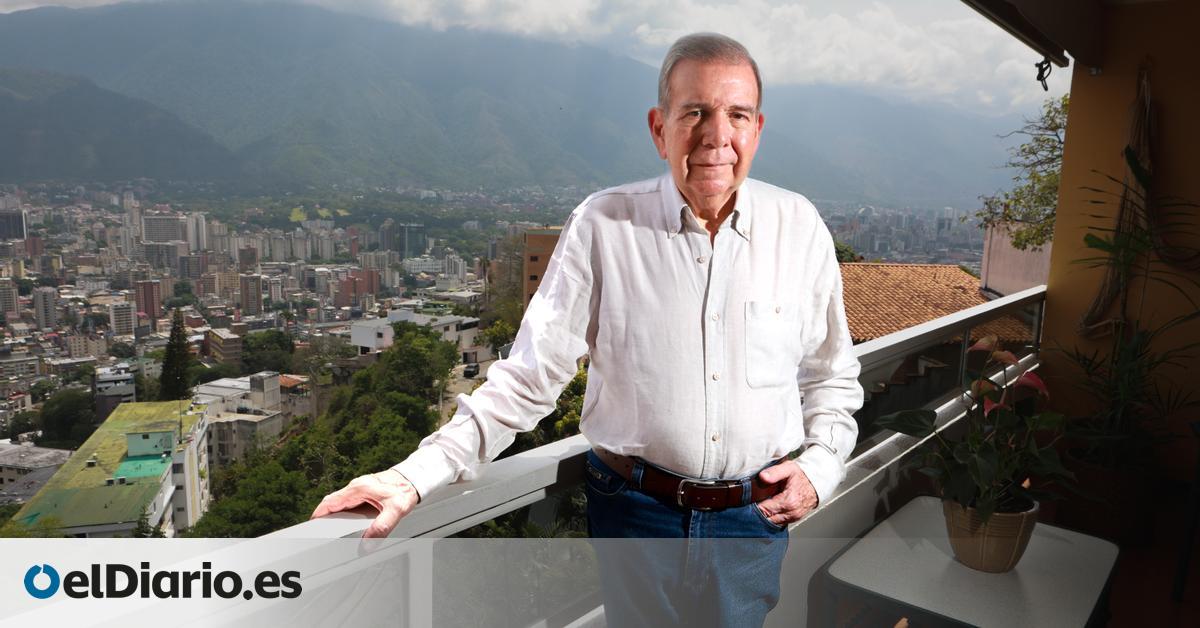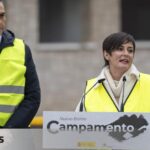
“Edmundo González is a hero that Spain will not abandon.” Just a few hours after Pedro Sánchez spoke these words before the Federal Committee of the PSOE, the Venezuelan opposition leader boarded a Spanish Air Force Falcon in Caracas bound for Spain, which will grant him the asylum he has requested with his wife. The process lasted eight days and former president José Luis Rodríguez Zapatero, who maintains a fluid relationship with both the Venezuelan government and the opposition in that country, has played “a decisive role,” according to the sources consulted.
Before heading to the Torrejón de Ardoz military base, where he landed early on Sunday afternoon after making stops in the Dominican Republic and the Azores, the opposition candidate to Nicolás Maduro in the elections of 28 July had spent two days – since 5 September – at the residence of the Spanish ambassador to Venezuela, Ramón Santos. Before that, it had been the diplomatic representation of Holland in the Latin American country that had given him shelter.
Edmundo González remained in the Dutch diplomatic headquarters for more than a month, after the situation became heated once the Venezuelan electoral authority declared Maduro’s victory. The last time he appeared in public was on July 30, two days after the elections, at a demonstration in front of the UN headquarters in Caracas.
The opposition has denounced “fraud” and has maintained since the election date that the records available to them prove that González won, while the international community is demanding that Venezuela publish all of these documents. The United States and some Latin American countries, such as Argentina and Uruguay, have recognised González as the winner, while the EU is maintaining the pressure before explicitly stating its position on the results, which it does not recognise in any case.
An agreed exit
González’s acceptance came in the face of the certainty that the Venezuelan justice system would go after him, as it had previously done with other opposition leaders. And, in recent days, the noose has been tightening. At the end of August, the Prosecutor’s Office summoned the former diplomat to testify as a suspect for crimes of conspiracy, usurpation of functions and instigation to disobedience. His refusal to appear at the courthouse on the three summonses led the Prosecutor’s Office to request an arrest warrant on September 3.
By then, contacts with senior officials in Maduro’s government to facilitate the opposition candidate’s exile had already begun with Zapatero’s mediation, after the Venezuelan opposition turned to the former Spanish president to avoid a trial against González that most likely led to his imprisonment. The sources consulted say that the silence maintained by the former Spanish president on what has happened in Venezuela since the elections has to do with preserving his capacity for negotiation, since he is one of the few leaders who can simultaneously dialogue with the Venezuelan opposition and Maduro’s entourage.
“There has been no political negotiation, but there is the capacity for dialogue with both the government and the opposition,” said diplomatic sources about the agreement that allowed the departure of González and his wife, who communicated practically at the same time from Caracas and Madrid.
“Once the relevant contacts between both governments have taken place, the essentials of the case have been met and in compliance with international law, Venezuela has granted the necessary safe-conducts for the sake of the country’s tranquility and political peace,” said Venezuelan Vice President Delcy Rodríguez in a statement posted on Instagram.
Almost at the same time, the announcement was made by the Spanish Government. The Foreign Ministry admits that contacts with the Venezuelan Government allowed Edmundo González and his wife to be transported from the ambassador’s residence to the airport, where they boarded the Falcon of Group 45 of the Air Force accompanied by the Secretary of State for Foreign and Global Affairs, Diego Martínez Belío. In Torrejón de Ardoz they were received by the Secretary of State for Ibero-America and Spanish in the World, Susana Sumelzo.
From the plane, Edmundo González spoke with the Minister of Foreign Affairs, José Manuel Albares, who at the end of the process traveled to China with the president, Pedro Sánchez. “The Government of Spain is committed to the political rights and physical integrity of all Venezuelans,” the head of diplomacy expressed through the social network X (formerly Twitter).
Different reception of González’s exile
The exile of Edmundo González has had a mixed reception. “His life was in danger, and the increasing threats, summons, arrest warrants and even attempts at blackmail and coercion to which he has been subjected, demonstrate that the regime has no scruples or limits in its obsession with silencing him and trying to subdue him,” said opposition leader María Corina Machado, who was disqualified before the elections in which González finally stood as a representative of the unitary platform.
“In the face of this brutal reality, it is necessary for our cause to preserve his freedom, his integrity and his life,” he added in X, where he assumed that on January 10, 2025 he will be officially named candidate. “Edmundo will fight from outside alongside our diaspora and I will continue to do so here, alongside you,” he added in a message addressed “to Venezuelans.”
However, there is also disappointment among the opposition about the candidate’s exile. “It is a success for them” [los chavistas] “Corina Machado will be left alone,” said the director of the Venezuelan newspaper El Nacional, Miguel Henrique Otero, also exiled in Madrid, in statements to TVE’s Canal 24 horas, reported by EFE.
The EU High Representative, Josep Borrell, also regretted the departure of the representative of the Democratic Unitary Platform (PUD). “It is a sad day for democracy in Venezuela,” he said in a statement in which he assured that “in a democracy, no political leader should be forced to seek asylum in another country.”
“The EU insists that the Venezuelan authorities end the repression, arbitrary arrests and harassment against members of the opposition and civil society, and release all political prisoners,” reads the statement, in which the head of European diplomacy points out that González “appears to be the winner of the presidential elections, by a large majority, according to copies of the electoral records available to the public.”
The EU, which does not recognise the election results, is putting pressure on the Venezuelan government to publish all the minutes, but has not officially confirmed that the opposition won.
There have also been reactions in domestic politics. While the Government celebrates that the mediation has managed to avoid the probable imprisonment of the opposition candidate, the Popular Party has attacked Sánchez’s Executive and Zapatero himself, whom it accuses of “taking a problem away from Maduro.”
Podemos MEP Irene Montero also attacked the government in a message on X where she blamed the Spanish government for legitimising the most coup-mongering far right in Latin America. “We already had the PP to do that,” said Montero.
Source: www.eldiario.es

